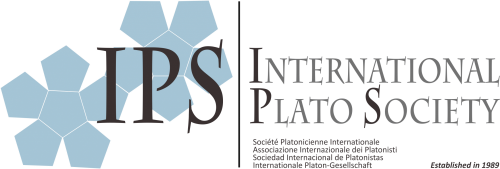 This year, the 2021 West Coast Plato Workshop will be hosted by Northern Arizona University’s Department of Philosophy. The focus of this year’s Workshop is Plato’s Sophist, with topics on: the greatest Kinds and their interrelations; the definitions of sophistry; and the Stranger’s method of doing philosophy.
This year, the 2021 West Coast Plato Workshop will be hosted by Northern Arizona University’s Department of Philosophy. The focus of this year’s Workshop is Plato’s Sophist, with topics on: the greatest Kinds and their interrelations; the definitions of sophistry; and the Stranger’s method of doing philosophy.
For workshop details and registration, head over to: www.nau.edu/cal/plato.
List of speakers and their topics:
- Keynote: Mary Louise Gill (Brown University): “Images of the Philosopher in the Sophist”
- Xin Liu (Nanjing University, China): “Koinōnia Megistōn Genōn: From the Exercise of One-Many in the Parmenides to the Exercise of Being-Nonbeing in the Sophist”
- Comments by Benjamin Keoseyan (University of Arizona)
- Pauline Sabrier (Friedrich-Alexander-Universität Erlangen-Nürnberg, Germany): “Change, Rest and Greatest Kinds in Plato’s Sophist”
- Comments by Chris Buckels (Junípero Serra High School, San Mateo, California)
- Colin C. Smith (University of Colorado Boulder): “Being as Communion: Sophist 248b2-8”
- Comments by Timothy Clarke (University of California Berkeley)
- Jan Szaif (University of California Davis): “Paideia and Philosophy in Plato’s Sophist”
- Comments by Fiona Leigh (University College London, Great Britain)
- Catherine McKeen (Bennington College): “The Private Sophist and the Public Sophist”
- Comments by Fernando Muniz (Federal University of Minas Gerais, Brazil)
- Ryan M. Brown (Boston College): “A Proto-Account of the ‘Convertibility of the Transcendentals’ in Plato’s Sophist”
- Comments by Emily Perry (University of California Berkeley)
- Peter Moore (Xavier University): “Sophistry as Mimicry of True Arts: Why There is a Sophist but Not a Sophistic Technitēs”
- Comments by Cristina Ionescu (Catholic University of America)
- Anna Pavani (University of Cologne and Brown University): “The Value Free Method that Values Names”
- Comments by Evan Rodriguez (Idaho State University)
- Christopher Izgin (Humboldt-Universität zu Berlin, Germany): “Are Aristotle’s Definitions of Truth and Falsity Platonic? Aristotle’s Metaphysics Γ.7, 1011b26–7, and Plato’s Sophist, 240e10–241a1”
- Comments by Mark Wheeler (University of California San Diego)
